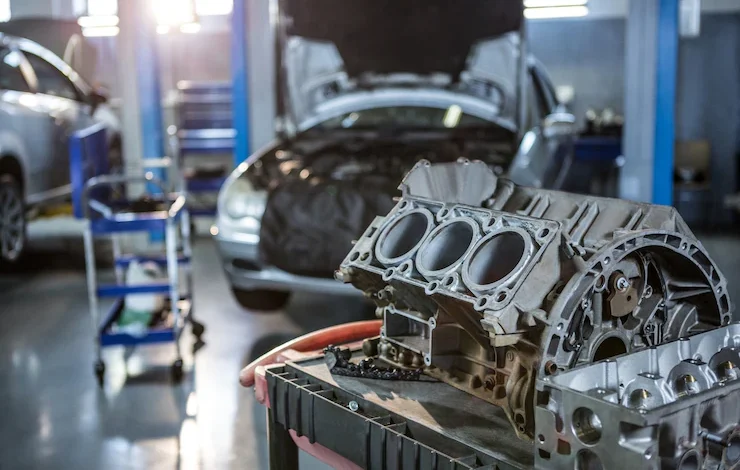How to start an Automotive workshop in South Africa

Starting an automotive workshop can be an exciting and rewarding venture for individuals passionate about cars and mechanics. South Africa, with its thriving automotive industry, presents a promising landscape for aspiring workshop owners. However, establishing a successful workshop requires careful planning, industry knowledge, and adherence to legal and operational requirements. In this article, we will provide a comprehensive guide on how to start an automotive workshop in South Africa.
- Conduct Market Research: Before embarking on your workshop journey, it is essential to conduct thorough market research. Evaluate the demand for automotive services in your target area, identify potential competitors, and assess market trends. Understanding the needs of your target customers will enable you to tailor your services and set yourself apart from the competition.
- Develop a Business Plan: A well-structured business plan is vital for the success of your automotive workshop. Outline your objectives, target market, pricing strategy, marketing plan, and financial projections. Include a detailed analysis of startup costs, such as equipment, tools, premises, staffing, and marketing expenses. A comprehensive business plan will not only serve as a roadmap but also attract potential investors or financial institutions for funding.
- Register Your Business: To operate legally in South Africa, you must register your workshop as a business entity. Choose an appropriate legal structure, such as a sole proprietorship, partnership, or private limited company, and register with the Companies and Intellectual Property Commission (CIPC). Obtain the necessary licenses and permits, including a business license, tax registration, and compliance with health and safety regulations.
- Secure a Suitable Location: Selecting the right location for your workshop is crucial. Look for a premises that offers sufficient space for repairs, equipment storage, and customer reception areas. Consider accessibility, proximity to major roads, and availability of parking. Ensure that the location meets zoning requirements for commercial use and obtain any necessary permits or approvals from local authorities.
- Invest in Quality Equipment and Tools: An automotive workshop requires a range of specialized equipment and tools to effectively diagnose and repair vehicles. Invest in high-quality tools, diagnostic equipment, lifts, compressors, and other necessary machinery. Collaborate with reputable suppliers and consider warranties, after-sales support, and spare parts availability.
- Build a Skilled Team: Hiring skilled and experienced technicians is vital to the success of your workshop. Seek professionals with relevant qualifications, certifications, and a passion for the automotive industry. Provide ongoing training and professional development opportunities to ensure your team stays updated with the latest technologies and repair techniques.
- Develop Effective Marketing Strategies: Promote your workshop through targeted marketing strategies to attract customers. Establish an online presence with a professional website and engage in social media marketing. Network with local car dealerships, auto parts suppliers, and insurance companies to build mutually beneficial partnerships. Offer competitive pricing, excellent customer service, and consider referral programs to incentivize existing customers to recommend your workshop.
- Prioritize Customer Service: Providing exceptional customer service is crucial for building a loyal customer base. Create a welcoming and clean environment for customers, clearly communicate repair processes and costs, and provide accurate estimates. Maintain transparent communication throughout the repair process, and follow up with customers to ensure satisfaction. Aim to exceed customer expectations to foster positive word-of-mouth referrals.
- Ensure Proper Bookkeeping and Financial Management: Implement robust financial management practices to monitor income, expenses, and profitability. Use accounting software to track invoices, expenses, and payroll. Maintain proper documentation of transactions and consult with a qualified accountant to ensure compliance with tax regulations.
- Stay Abreast of Industry Trends: The automotive industry is continually evolving, with new technologies and repair methods emerging. Stay updated with industry trends, attend workshops, conferences, and trade shows to broaden your knowledge. Invest in training and equipment upgrades to remain competitive and meet the changing needs of your customers.
Starting an automotive workshop in South Africa requires careful planning, market research, and compliance with legal and operational requirements. By following this comprehensive guide, you can lay a solid foundation for a successful workshop. Remember to focus on providing excellent customer service, hiring skilled technicians, and staying updated with industry trends. With dedication, passion, and a commitment to quality, your automotive workshop can thrive in South Africa’s dynamic automotive market.


